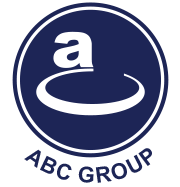Accounting and Auditing
ABC Asian Legal Service Co., Ltd. has 4 full-time accountants all of whom have degrees in accounting and relevant work experience. We offer accounting and auditing for Companies and Limited Partnership and provide accounting-packages based on the needs of our clients at a reasonable fee.
Please contact us for more details.
General Information
Companies engaged in business in Thailand have a duty to keep accounts and provide bookkeeping for business operations in accordance with the Thai Civil and Commercial Code, Revenue Code and Accounts Act. The companies’ directors must maintain true accounts to be kept of the sums received and extended by the company and of the matters in respect of which each receipt or expenditure takes place and of the assets and liabilities of the company. Documents may be prepared in any language, provided that a Thai translation is attached. All accounting entries should be written in ink, typewritten, or printed.
A newly-established company or partnership should close accounts within 12 months from the commencement date of bookkeeping and close the accounts every twelve month thereafter. Performance record is to be certified by the company auditor, approved by shareholders, and filed with the Commercial Registration Department at the Ministry of Commerce within 5 months at the end of the fiscal year and with the Revenue Department at the Ministry of Finance within 150 days at the end of the fiscal year. If a company wishes to change its accounting period, it must obtain written approval from the Director General of the Revenue Department.
Accounting Principles
In general, the basic accounting principles practiced in the United States of America are accepted in Thailand, as are accounting methods and conventions sanctioned by law. The Institute of Certified Accountants and Auditors of Thailand is the authority promoting the application of generally accepted accounting principles. Any accounting method adopted by a company must be used consistently and may be changed only with approval of the Revenue Department.
Certain accounting practices of note include:
Depreciation - The Revenue Code permits the use of varying depreciation rates according to the nature of the classes of assets which have the effect of depreciating the assets over periods that may be shorter than their estimated useful lives. These maximum depreciation rates are not mandatory; a company may use lower rates that approximate the estimated useful lives of the assets. If a lower rate is used in the books of the accounts, the same rate must be used in the income tax return.
Accounting for Pension Plans - Contributions to a pension or provident fund are not deductible for tax purposes unless these are actually paid out to the employees, or the fund is approved as a qualified fund by the Revenue Department and is managed by a licensed fund manager.
Consolidation - Local companies with either foreign or local subsidiaries are not required to consolidate their financial statements for tax and other government reporting purposes, except for listed companies which must submit consolidated financial statements to the Securities and Exchange Commission of Thailand.
Statutory Reserve - A statutory reserve of at least five percent of the annual net profits arising from the business must be appropriated by the company at each distribution of dividends until the reserve reaches at least 10 percent of the company's authorized capital.
Stock Dividends - Stock dividends are taxable as ordinary dividends and may be declared only if there is an approved increase in authorized capital. The law requires the authorized capital to be subscribed in full by the shareholders


